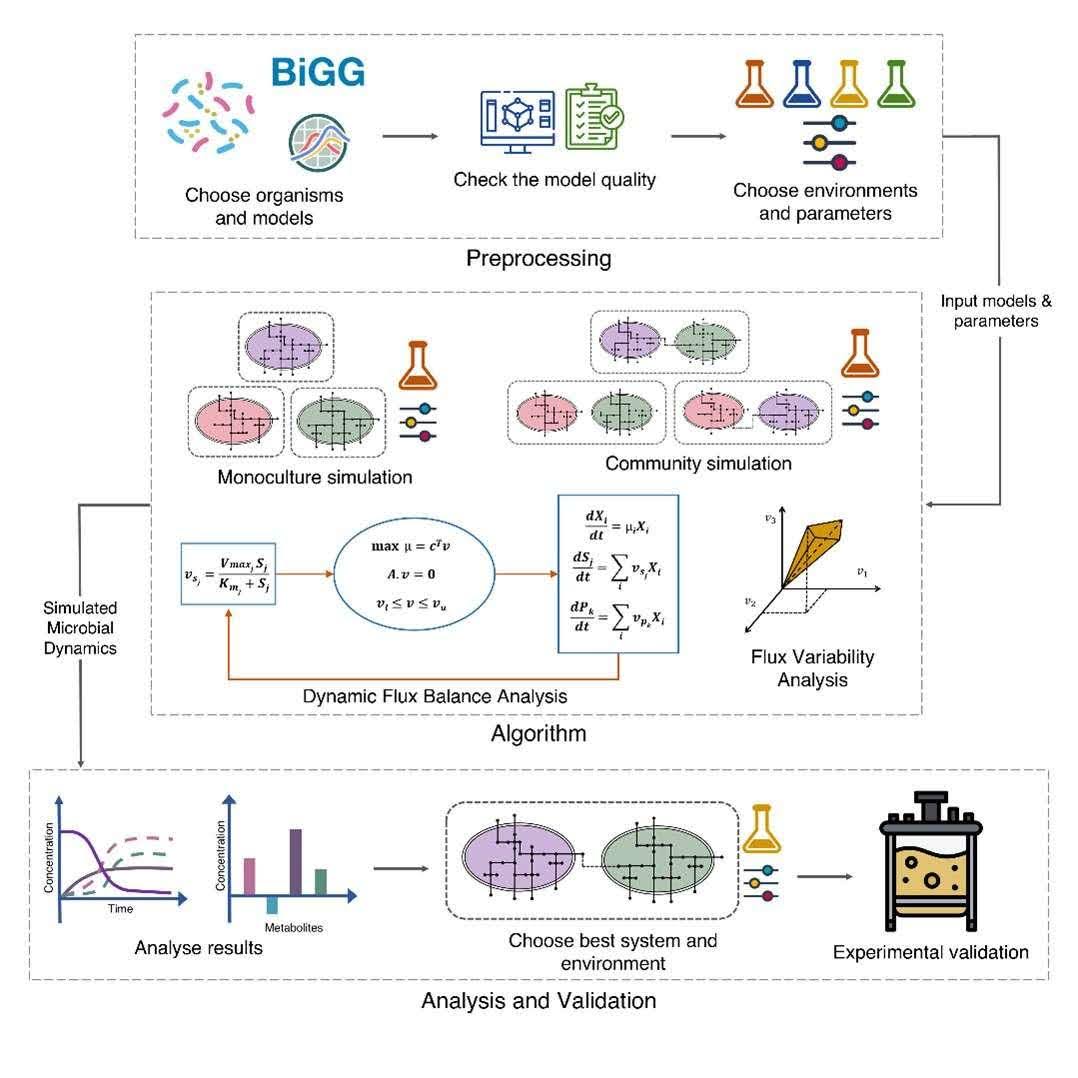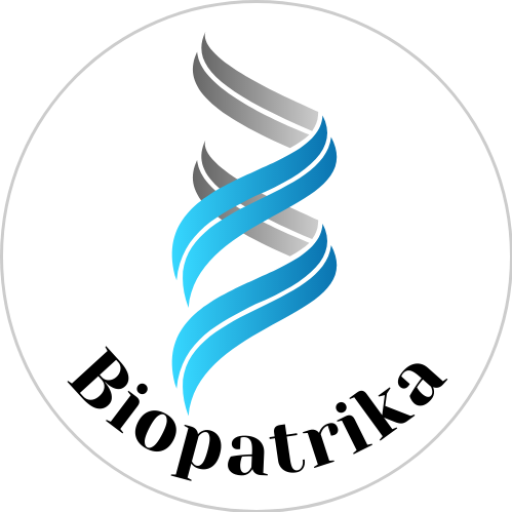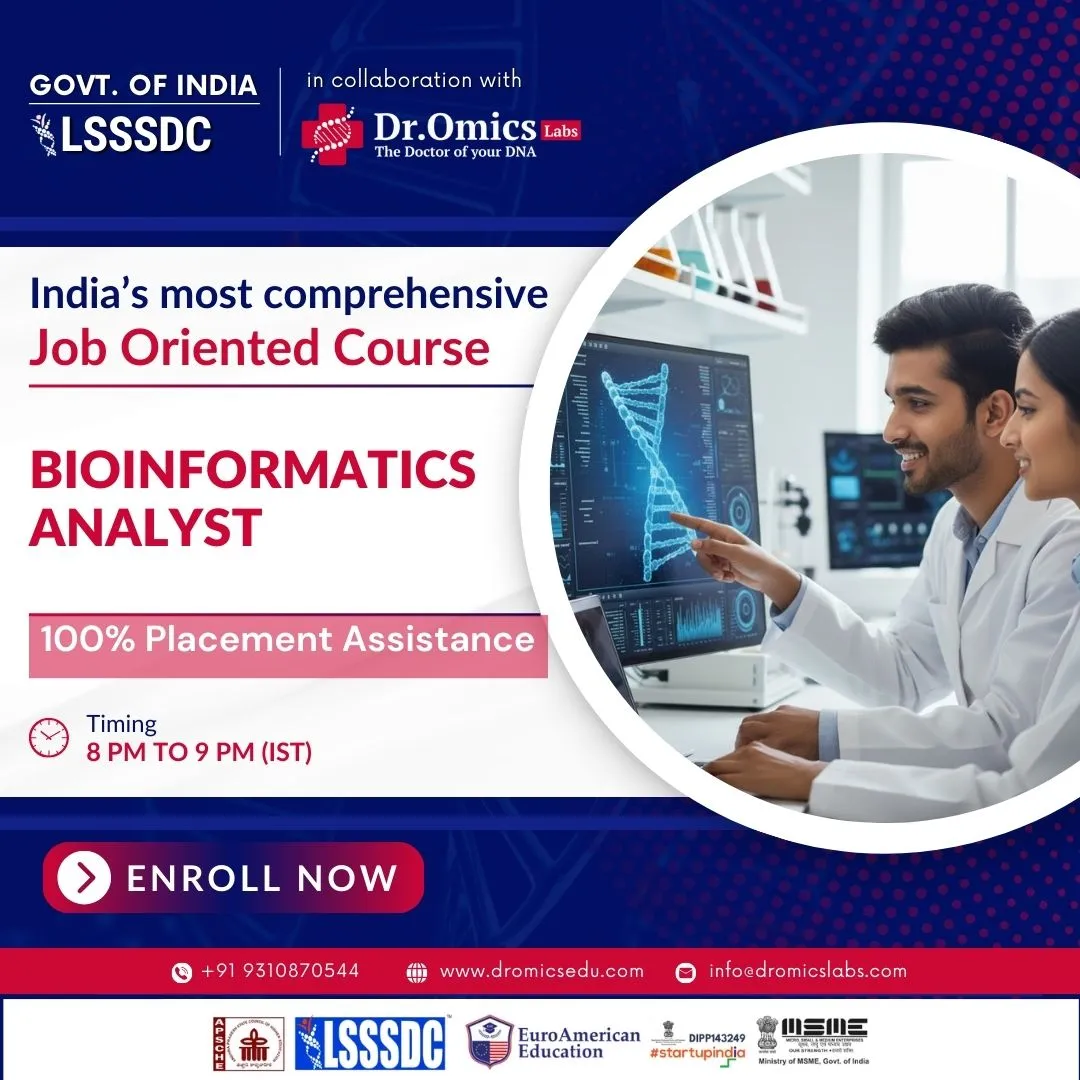Research Summary: We developed COSMOS, a computational algorithm that predicts when single microbes or communities work best for bioproduction, helping reduce trial-and-error, cut costs, and design efficient, sustainable processes.
Author interview

Lavanya Raajaraam is a PhD scholar in the Department of Biotechnology at Indian Institute of Technology Madras. She develops computational tools to explore microbial systems, aiming to create efficient and sustainable alternatives to traditional chemical processes.
Linkedin: https://www.linkedin.com/in/lavanya-raajaraam-775a79a5/
Twitter: https://x.com/LavRaaj
Lab: Dr. Karthik Raman, Indian Institute of Technology Madras
Lab website: https://ramanlab.github.io/
What was the core problem you aimed to solve with this research?
We wanted to answer a simple but important question in biotechnology: Is it better to use a single microbe or a community of microbes to produce useful products like fuels, medicines, or chemicals? A single microbe is easier to control, but it can reach its limits. Communities can share tasks and often achieve more, but they are harder to manage. Our research compared both approaches and asked what factors, such as oxygen levels, nutrient supply, and cooperation between microbes, decide which system works best. In short, we wanted to know when teamwork pays off and when one microbe is enough.

How did you go about solving this problem?
To solve this problem, we built an algorithm that can act like a “test bench” for microbes. It takes different single microbes and microbial communities, simulates how they grow, and compares how much of a useful product each one can make. Instead of only looking at the final outcome, our method tracks changes over time, which helps us see how microbes grow, interact, and share resources. This way, we can predict which system will be most efficient in a given nutrient environment without having to test every option in the lab.
How would you explain your research outcomes (Key findings) to the non-scientific community?
Our research showed that the tool we built, called COSMOS, can tell us which microbes work best alone and which work better as a team, depending on the environment. For example, COSMOS predicted that a team of two microbes, Klebsiella and Shewanella, would make more of a valuable chemical called 1,3-propanediol (a chemical used to make plastics and other products) than either of them could on their own. When scientists tested this in the lab, that is exactly what happened. This shows that COSMOS can guide us in choosing the right microbes and the right conditions to get the best results for producing fuels, medicines, and other useful products.
What are the potential implications of your findings for the field and society?
Most industrial bioprocesses currently use single microbes, and communities are only considered when a single microbe cannot use the raw material or make the desired product. Our research shows that communities can sometimes perform better even when monocultures are capable. Until now, there has been very little systematic comparison between the two approaches. COSMOS fills this gap by identifying whether a single microbe or a community will deliver the best yield for a given product. This means industries can design processes that are both more efficient and more sustainable. In the bigger picture, such tools can speed up the move away from fossil fuel–based production and enable sustainable ways of producing everyday essentials, from fuels to medicines to plastics.
Microbial co-cultures can present many advantages for bioprocessing; yet, their systematic selection is not easy and presents many challenges. With COSMOS, scientists can now easily predict the ideal single microbe/co-culture for a given metabolic engineering objective. — Dr. Karthik Raman
What was the exciting moment during your research?
One of the most exciting moments was when we found experimental evidence that matched our predictions. It is rare to find studies that directly compare a single microbe with a community for the same product under the same conditions. But a study showed that a co-culture of Klebsiella pneumoniae and Shewanella oneidensis produced more of the chemical 1,3-propanediol than even the best engineered version of Klebsiella alone. Our algorithm, COSMOS, had predicted exactly this outcome, along with the ideal nutrient concentration for maximum production. Seeing our computational predictions align so well with real experimental results was very rewarding and highlighted the power of our approach.
Paper reference: Raajaraam, L. & Raman, K. COmmunity and Single Microbe Optimisation System (COSMOS). npj Syst Biol Appl 11, 1-15 (2025). https://www.nature.com/articles/s41540-025-00534-w
Explore more
🎤 Career – Real career stories and job profiles of life science professionals. Discover current opportunities for students and researchers.
💼 Jobs – The latest job openings and internship alerts across academia and industry.
📢 Advertise with BioPatrika – Reach the Right Audience, Fast!
🛠️ Services – Regulatory support, patent filing assistance, and career consulting services.




